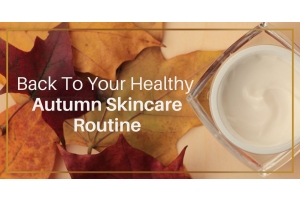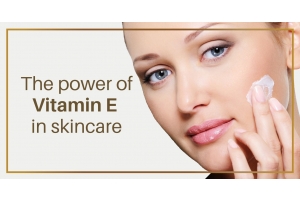Our partners and us collect data and use cookies, email pixels and similar tools to enhance your experience, analyse traffic and for ad personalisation and measurement. One such partner is Google. For more information see our cookie policy
The health benefits of Probiotics skincare

Probiotics encompass an ever-changing array of microorganisms living within and on the surface of our bodies. Each person has their own distinctive, ever-changing combination of these organisms, known as the microbiome. It was only recently that researchers truly started understanding the impact probiotics have on the skin, acne, and other conditions.

To give you an idea of how far the research has come in a short period of time, less than 10 years ago, scientists thought people had about 200 different types of microbes living in and on our bodies; today, we know there are trillions of critters sharing space with us. Don’t let that creep you out—they play a vital role in skin’s ability to protect itself; we couldn’t exist without them! Those bacteria are essential to fight infection, protect against environmental damage, regulate pH levels, and keep the skin hydrated and healthy.

Soaps, face scrubs, and medications like antibiotics can tip the scales in favor of harmful bacteria. Sun damage, airborne pollutants, diet, and irritating skin care products are just a few examples of what can throw the skin’s microbiome out of balance, leading to lingering issues like acne, dryness, or red, sensitive skin. The goal of probiotic skin care is to help restore the delicate balance that allows the good bacteria to flourish, so that skin can keep itself in peak shape.
This bacterial imbalance can cause flare-ups and problems including:
- Acne
- Rosacea
- Eczema
- Dryness and flaky skin
If you experience any of those skin woes, probiotic creams might help.
One piece of the puzzle: Probiotics for acne, eczema and more

Good Bacteria VS Bad Bacteria
Probiotics or the "Beauty Bugs" are the good bacteria and when the "bad bugs" the bad bacteria outnumber the "Beauty Bugs" inflammation is triggered, which can cause everything from breakouts and sensitivity to Rosacea and premature aging. Probiotics skincare focuses on reducing inflammation and rebalancing the skin. Scientifically validated clinical testing shows, probiotics, prebiotics, and beneficial botanicals.
GLOWBIOTICS Skincare
GLOWBIOTICS has introduced smart peptide formulations that help to restore balance and radiance to the skin, allowing all skin types the ability to glow from the inside out.
It’s not as easy as buying just any “probiotic cream” on the market. To truly reap the benefits of probiotics in skincare, key formulary considerations must be met. We’ll walk you through the essentials of understanding probiotics so you can use them to change your skin for the better.
Why Probiotics Are Important for the skin?
Skin’s surface is a multifaceted environment, almost like a city of living things populating and working in every part of it, and probiotics play a crucial role in keeping it in balance.
The balanced microbiome helps:
- Strengthen skin’s surface against environmental invaders.
- Enhance skin’s ability to become—and stay—properly hydrated.
- Diminish factors that trigger sensitized, reddened skin.
- Visibly improve signs of dryness, including a tight, uncomfortable feeling.
- Restore a healthy pH balance to the skin’s surface.
It’s important to recognize that probiotics alone aren’t the answer. They work best when combined with ingredients known as prebiotics. Prebiotics naturally fuel the growth of probiotics and help them thrive so they can effectively do their job. The best probiotic moisturizer (or any other probiotic skin care, for that matter), should contain both prebiotics and probiotics for optimal results.
There’s another essential part to the equation: As probiotics break down on the skin’s surface, they create other skin-beneficial substances known as postbiotics. Postbiotics include hyaluronic acid, peptides, and vitamins--all of which help diminish signs of aging, boost hydration, and improve skin’s healthy, vibrant tone. The synergy between these “biotics” makes all the difference when it comes to probiotic skin care.
Which Probiotics Are Good for the Skin?
Research has looked at numerous probiotics for skin, acne, and other conditions, but it’s impossible to single out one as the best considering everyone has a unique microbiome. Instead, seek out a formula that contains a mix of “biotic” ingredients (pre-, pro-, and post-) for a well-rounded approach to stabilizing and maintaining skin’s healthy microbiome. A safe workaround is using probiotic lysates or ferments, non-living ingredients derived from probiotics that deliver many of the same benefits as the live versions.
Proven probiotic skincare ingredients include the species Lactobacillus, Bifidobacterium, Vitreoscilla, and various ferments.
For sources of prebiotics, look for ingredients such as xylitol, rhamnose, glucomannan, and oligosaccharides.
For postbiotic-compatible ingredients, the hyaluronic acid, peptides, and ceramides we mention above make an excellent complement to what probiotics can do for the skin.
Lysate ingredients are also beneficial to probiotic skin care. As derivatives of probiotics, lysates work in tandem to help reinforce the skin’s microbiome and diminish skin issues.
It’s important to point out that probiotic lysates and ferments in skin care demand careful formulation due to their inherent instability (they’re very fragile and deteriorate easily). This means no jar packaging (light and air cause them to break down faster) and buying products from brands that have a science-backed understanding of how these ingredients work. You should also look for probiotic lysates and ferments in a fragrance-free formula as this will boost their soothing benefits.
The bottom line: Products that utilize the correct formulary techniques are essential to getting the most out of your probiotic skin care. For best results, look for a combination of “biotic” ingredients to take advantage of what their special synergy can do for all skin types.
Should You Use Probiotic Skin Care Products?
Protecting good bacteria
Probiotic products can restore balance to your skin. But it’s a good idea to keep your bacterial pals healthy in the first place. How can you do that?
- Step away from the cleanser: Any soap-based cleansers, including products labeled anti-bacterial or anti-acne, will strip skin of its natural bacteria.
- Use non-soap-based cleansers: These products usually sport labels like “gentle” or “for sensitive skin.”
- Just add water: In the morning, you might skip cleanser altogether and wash with water.
With tweaks to your cleansing routine — and maybe a new probiotic product or two — your resident bacteria are likely to find their equilibrium. When it comes to your skin, that’s a beautiful thing.
As the pioneer of probiotic skincare, GLOWBIOTICS has created a unique skincare range that targets specific skin conditions including those difficult to treat conditions stemming from hormonal disruptions, inflammatory triggers, and microbiome imbalance.
GLOWBIOTICS is 100% committed to being clean, safe, and effective and never formulated with parabens, phthalates, sulfates, artificial dyes, mineral oils, toxic or hormone-disrupting ingredients.
Exclusively on WWW.ELUXURA.COM


 Qatar
Qatar UAE
UAE Saudi Arabia
Saudi Arabia Oman
Oman Kuwait
Kuwait




